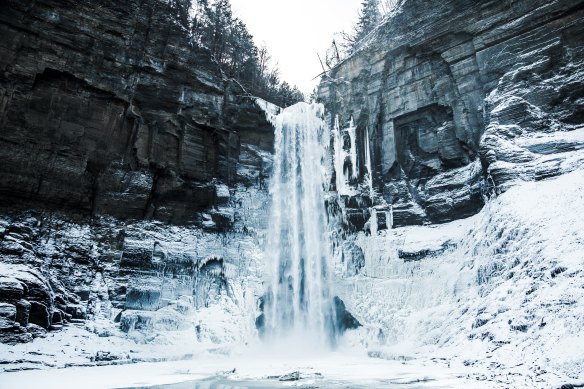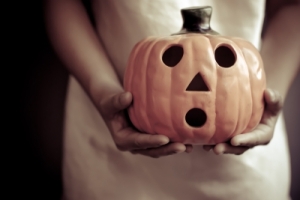
I wrote this piece for an event called ‘Honouring Your Ancestors’ hosted by the Portsmouth T’articulation group during this year’s Darkfest.
The story has a science fiction feel, to coincide with the launch of my latest 5 track EP, Moon Heart, which is available now from Spotify, Apple, Amazon, & Google. It’s also available to purchase on Bandcamp, along with many of my previous releases.
Hope you enjoy the story!
*********************
Manoeuvring thrusters should have fired on the final descent, but instead, a high-pitched whine like a dying breath signalled the final demise of the craft. Hurtling through a forest of tall evergreens its hull was ditched into the regolith, and breached instantly. All that remained to break the stillness were gently falling motes of debris, and a rhythmic clicking as the metal of the hull began to cool and to crack. Moonlight glanced off the ship’s flanks. The light was a shimmering wave cast by twin satellites, who in turn, diffused the light from a nearby red giant.
Cobex woke with a shudder. The first thing he noticed was a humming sound, somewhere on the edge of hearing. His ribs ached, but he appeared to have escaped any serious damage. He looked across at his First Officer. Borand was still inert, his hands limp at his sides, his mouth slightly open, and a bleeding wound on his head. He tried to rouse the man gently, but the Borand just groaned and wouldn’t open his eyes. Cobex became acutely aware of a presence watching at his back.
“The man is wounded,” her voice was melodic and low.
“I can assist you. I am Kora”
Cobex scanned her face, finding concern in wide, opalescent eyes. Her face was tinged the colour of lilac, and she offered up two hands towards him in some sort of cultural gesture which seemed to suggest openness. Kora beckoned out into the landscape beyond the hatch. She must have snuck in quietly while he was dealing with Borand.
“Come,” she said.
“But what about him?”
Kora was placid. “We will fetch him some medicine to revive him.” She said.
Out in the moonlight everything was cool and still. Only the rustle of the leaves of the forest far away to their left broke the tranquillity. Even when Kora spoke, her voice seemed in concert with the world around her, it merged with the rhythm of the hum which resonated across the landscape, and it was as if she was an integral part of it. For she did have a beautiful voice, Cobex realised. Her hair was straight and thick and fell all the way down to her waist, ebony black. They passed across the rocky plain in the pale blue light, and Cobex felt as if they might have been walking on the surface of a vast ocean.
“The compound is just where those rocks are, do you see?” she pointed. “What is your designator?”
Cobex looked blankly back at her.
“Your designator. How should we address you?”
“Zed Cobex. Captain of the Bison.”
“Your ship.”
“Yes. It was.”
Kora nodded, “you will be safe here” she said, and Cobex felt a surge of contentment he couldn’t rationalise. But space was vast; the ship had been a lonely place.
They reached a small cave entrance.
“Come,” Kora motioned him inside. “This is the home of the true ancestors.”
They made their way through stone corridors to a vast chamber lit by long lanterns which gave off a gentle aquamarine glow like luminescent sea creatures. In the centre sat a massive plinth, adorned with dancing figures. Kora’s voice rose in adoration.
“They love us with an endless love. Blessed are the true ancestors! Blessed are those who perpetuate love.”
Another, older, masculine voice joined her.
“And we perpetuate love. Blessed are the true ancestors!”
The old man who had spoken appeared from behind the stone, and came towards them. He wore the same shimmering gown as Kora did, but his egg-like bald head was painted a vibrant shade of blue, and his eyelids were smeared with green and gold.
“Welcome.” He said, and he stretched out his arms in the gesture Cobex recognised from the figures on the monolith.
Kora and the man spoke in a gentle, rolling language, then the man departed.
“Bayo has gone to fetch our medical devices,” she said.
Cobex nodded, relieved. He looked again at the monolith.
“The ancestors, they are your gods?” he asked.
Kora smiled as if his question were quaint. “Yes,” she replied. “In a way. They are our progenitors.”
“Why do you call them the ‘true ancestors’?”
Kora paused for a moment, her eyebrows furrowed.
“Because everything that is beautiful is haunted by darkness.” She said, then after a moment, she added.
“But those ones are now hidden. They will not be revived.” The thought seemed to comfort her.
Joined once again by the old man, now hefting his medical kit, they crossed the great moonlit terrain and it was as peaceful as ever. The rhythmic humming continued. Kora walked beside him silently, smiling obliquely in his direction from time to time. But when they reached the ship, Borand was gone.
His eyes stinging and still slightly blurred, Officer Borand lunged along, unknowingly tracing a path in the opposite direction to where Cobex and Kora had initially set off, and were now returning. His left arm dislocated at the shoulder, his head wound bleeding into his eyes, Borand stumbled like a drunkered, hopelessly concussed. The buzzing noise he had heard since waking was driving him insane and becoming steadily louder, and more insistent. All he knew, was that he had to shut it off. It made his head feel as if it was splitting in two. Up ahead he saw a strange rocky outcropping. On closer inspection he saw that it was honeycombed with caverns. The caverns were lit by small lanterns which gave off an eerie red glow. Borand groped his way along the stone corridor in painful steps. There was a brighter glow up ahead. It was deep red like the lanterns, but felt hot and pulsing. The noise grew louder with each step Boreand took; the sound rattle his bones, but after a while, he noticed that the pain had become almost mesmeric. He was mumbling to himself a mantra he had no memory of. Just something that ran around, and around in his head:
“We hate them with an endless hatred. The false ancestors.”
Borand could feel something shifting within him. It was as if an urge was living inside his skin, and was pulling him forward. The red cloud. Suddenly it came back into his mind. The cochineal fog he had seen at the door of the ship when he had woken up and realised that Cobex gone. He reached the heart of the caverns, bathed in red light. There, almost as if he had expected it, sat a giant monolith, a finger pointed at the cavern ceiling which seemed to stretch up to the heavens.
It contained frescos at its base and sumit, of figures, dancing, or perhaps, on closer inspection, they were burning.
“Here,” a voice seemed to say from within him, compelling him forward, beyond the stone, into an antechamber.
The source of the humming came from a metal box, incongruous amongst the stone idolatry.
“There,” the voice insisted, guiding his hands over the metal like a lover’s over skin.
“And there,” the voice said, defiant.
Borand felt exhaltation sweep through him as he pressed first one switch, and then another. The old humming ceased, and a new thrum began, slightly lower in tone. The room became suffused with searing heat and a figure began to materialise before his eyes, a carmine haze taking on shape. She was the last thing Borand saw before he collapsed. A beautiful burning woman, tall and triumphant.
In the ship, Cobex stared at the empty seat, and the trail of blood which led out through the craft door. Kora, and the old man shot each other horrified glances. They began to speak urgently in their language, and Cobex, tired of waiting, stormed outside to search for footprints in the dust. Kora followed him.
“We have to find your friend immediately.” She said, a tremor in her voice.
“Maybe he met one of your people,” he said.
“No,” Kora replied, “no they would have taken him to the compound, we would have seen them.” Her rose in panic, “his steps are going the wrong way!” she cried, and as she did so, Cobex reached out to touch her.
He tried to say, “Everything is going to be okay,” but in that moment, the humming ceased.
Kora, who had been so real and so beautiful the instant before, became suddenly translucent. Her arms reaching out for him, terror stricken, before she vanished entirely. Rushing to the ship, Cobex saw that the old man was gone too. He stumbled back outside into a wall of heat, and was on the brink of crying out, when he saw, up ahead a woman approaching. Her skin glowed like fire, and a strange smile snaked across her lips.
“Blessed are the true ancestors,” she said, and the essence of her swept through his body like a flame.










